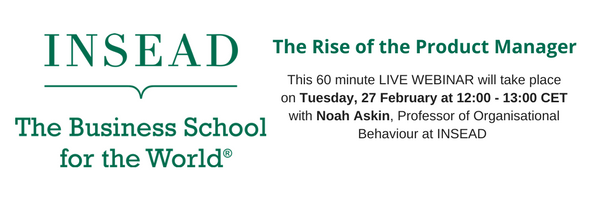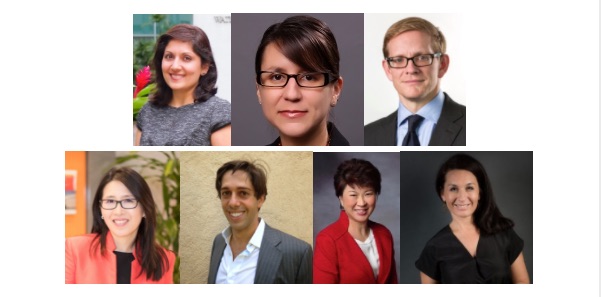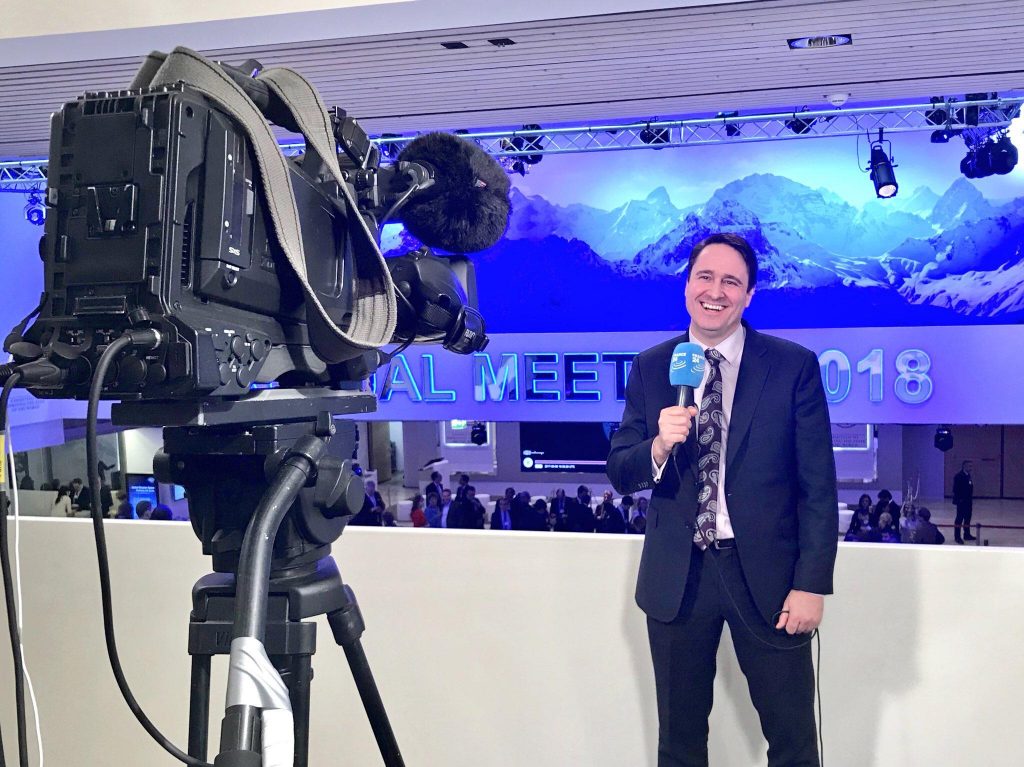TITLE: The Rise of the Product Manager (and the skills they may not realize they need)

Hear Noah Askin, Professor of Organisation Behaviour & Director of INSEAD’s Product Management Executive Programme, speak about the growing role and prominence of product management within companies and how product managers will need new skills to take their seats at the leadership table.
This 60 minute LIVE WEBINAR will take place on Tuesday, 27 February at 12:00 – 13:00 CET.
There is a new call for Product Leaders within companies, reflecting the increasing importance of the product manager in today’s business environment. As organisations shift from linear producers of products to ecosystems, capable of incorporating big data analyses into all facets of product design and execution, product managers are taking on bigger roles.
But many product managers face new challenges that they may not be ready for. They have to motivate their teams and an array of stakeholders inside and outside of the organisation, often without formal authority. They may have become savvy at a technical craft that has enabled them to develop their organisation’s suite of products and move up the ranks, but the “management” side of product management is often (and understandably) under-developed.
INSEAD has recently partnered with Product Management Festival to develop the Product Management Executive Programme (PMEP). PMEP provides current and rising Product Managers with the tools, knowledge and know-how to lead effectively and to amplify their impact in the organisation. Find out more here
The French President Moves to rebrand Paris as Business Friendly
French President Emmanuel Macron wants to revitalise the French economy and eliminate Paris’ reputation of a destination that is unfavorable to investors and entrepreneurs. INSEAD Deputy Dean Peter Zemsky told FRANCE 24 that Paris was recovering from a shallow point both regarding perception and terms of policy. One of the factors that have hindered investors and business people from starting their business in France is the reputation of labour laws, high taxes and bureaucracy. French Tribune
France – 30 January
In French
Buybacks are not guilty of all the FT’s charges
Théo Vermaelen, Professor of Finance at INSEAD, shares in a letter to the FT that he believes share buybacks are less guilty than the Financial Times makes it sound in “The case against share buybacks” (Lex in Depth, January 30).
Financial Times
UK – 7 February
These are the best countries and cities for attracting and developing talent
When it comes to making a country, a city or an organisation competitive, there’s an essential ingredient: People. For the last six years, the Global Talent Competitiveness Index (GTCI) has ranked countries and major cities on their ability to attract, develop and retain talent.
Other features:
China – Jiemian (In Chinese)
Indonesia – Kompasiana (In Bahasa Indonesian)
Portugal – Jornal Economico (In Portuguese) The World Economic Forum
Switzerland – 7 February




